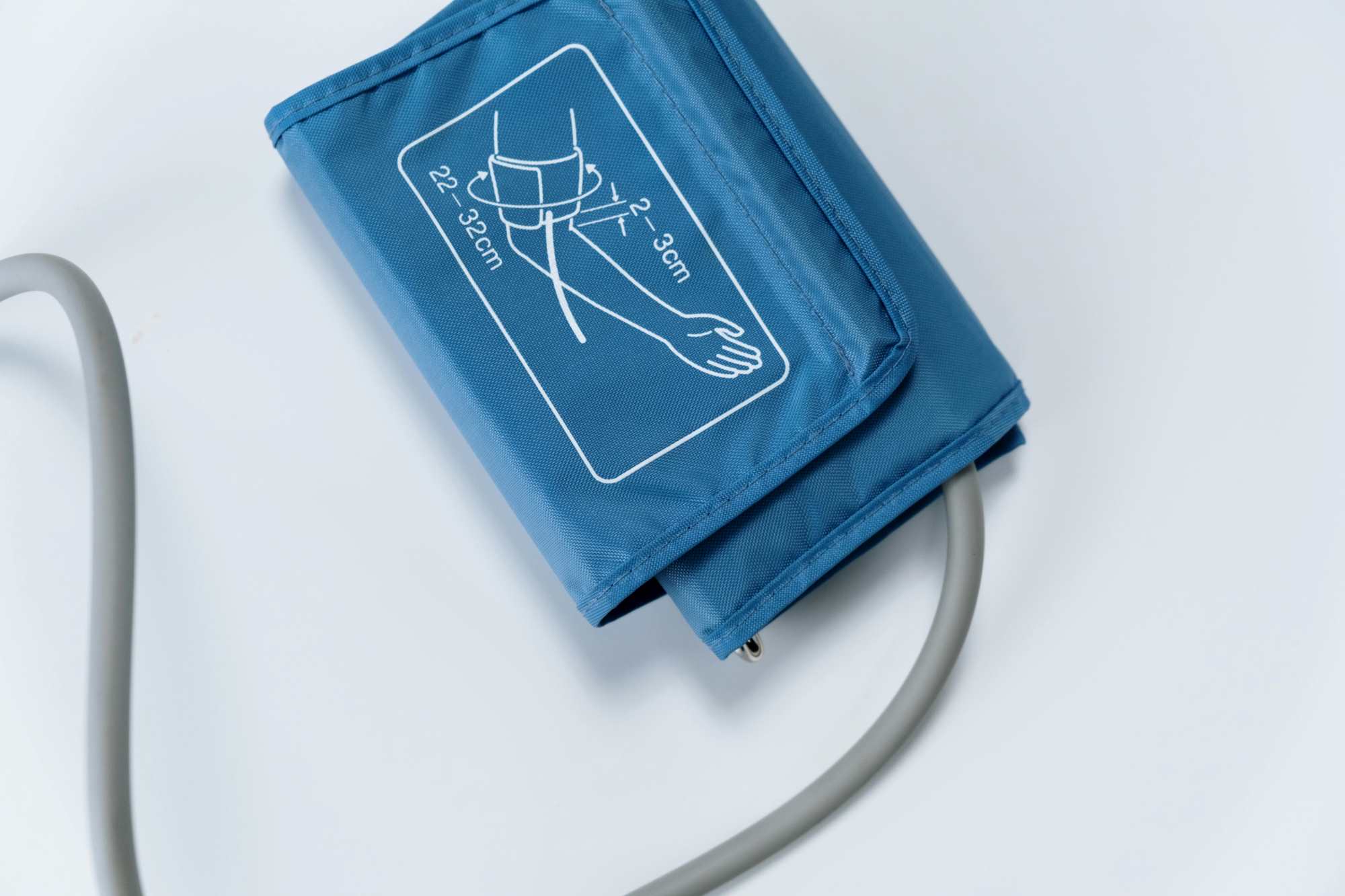What is Crohn’s Disease?
Crohn’s disease is a chronic inflammatory condition that affects the gastrointestinal (GI) tract, which can lead to a range of digestive problems. It is a type of Inflammatory Bowel Disease (IBD), along with ulcerative colitis. Crohn’s disease can affect any part of the GI tract, from the mouth to the anus, but it most commonly impacts the small intestine and the beginning of the large intestine.
Crohn’s disease is an autoimmune condition, meaning that the body’s immune system mistakenly attacks healthy tissue in the digestive tract, leading to inflammation. While the exact cause of Crohn’s disease remains unknown, genetic factors, immune system dysfunction, and environmental factors are thought to contribute to its development.

Symptoms of Crohn’s Disease
The symptoms of Crohn’s disease can vary depending on the location and severity of inflammation within the GI tract. Symptoms may come and go, with periods of flare-ups followed by times of remission. Common symptoms include:
- Abdominal Pain and Cramping: This is often the most prominent symptom, typically located in the lower right abdomen, though pain can occur anywhere in the abdomen. The intensity can range from mild discomfort to severe pain.
- Chronic Diarrhea: Persistent diarrhea, often accompanied by a sense of urgency, is a common symptom. Diarrhea may contain blood, mucus, or pus in more severe cases.
- Fatigue: Many individuals with Crohn’s disease experience fatigue and a general feeling of being unwell due to ongoing inflammation and nutrient malabsorption.
- Weight Loss and Malnutrition: Inflammation can impair the body’s ability to absorb nutrients, leading to weight loss, malnutrition, and deficiencies in vitamins and minerals.
- Fever: Low-grade fevers are common during flare-ups of inflammation.
- Mouth Sores: Some individuals may develop ulcers in the mouth.
- Blood in Stool: Inflammation can cause bleeding in the digestive tract, resulting in bloody stools, particularly during flare-ups.
- Fistulas: In severe cases, Crohn’s disease can cause abnormal connections between different parts of the intestine or between the intestine and other organs, such as the bladder or skin. These are called fistulas, which can lead to pain and infections.
- Other Symptoms: Joint pain, skin rashes, eye inflammation, and liver problems are some of the extraintestinal manifestations of Crohn’s disease, meaning they occur outside the digestive system but are still related to the condition.
Diagnosis of Crohn’s Disease
Diagnosing Crohn’s disease typically involves a combination of tests, as no single test can definitively confirm it. Diagnostic procedures may include:
- Endoscopy or Colonoscopy: Allows doctors to visually examine the intestines and take tissue samples (biopsies) for analysis.
- Blood Tests: Used to check for signs of inflammation or anemia.
- Imaging Studies: CT scans, MRI scans, or X-rays can help visualize the intestines and identify areas of inflammation or blockages.
- Stool Tests: To rule out infections and check for inflammation markers.
Treatments for Crohn’s Disease
While there is no cure for Crohn’s disease, a variety of treatments can help manage symptoms, reduce inflammation, and maintain long-term remission. Treatment plans are usually tailored to the individual based on the severity and location of the disease.

Medications
Several types of medications are commonly used to treat Crohn’s disease:
- Anti-Inflammatory Drugs (Aminosalicylates): These drugs help reduce inflammation in the GI tract and are often used for mild cases of Crohn’s disease.
- Corticosteroids: Steroids like prednisone are effective at reducing inflammation quickly during flare-ups. However, they are not suitable for long-term use due to potential side effects like weight gain, mood swings, and weakened bones.
- Immunosuppressants: These medications, such as azathioprine and methotrexate, work by suppressing the immune system to prevent it from attacking healthy tissue. They can be effective in maintaining remission but may take several months to show results.
- Biologic Therapies: Biologics are a newer class of drugs that target specific components of the immune system involved in inflammation. Examples include infliximab and adalimumab. These are often prescribed for moderate to severe cases of Crohn’s disease.
- Antibiotics: Sometimes, antibiotics are prescribed to treat infections or complications such as abscesses or fistulas.
- Antidiarrheal and Pain Relief Medications: To control specific symptoms like diarrhea or pain, these medications may be used as needed.
Diet and Nutrition
Proper nutrition plays a crucial role in managing Crohn’s disease. Since the condition can impair nutrient absorption, individuals need to ensure they’re getting adequate vitamins and minerals. Common dietary recommendations include:
- Low-Residue Diet: Reduces the amount of fiber and undigested food passing through the intestines, which may help reduce diarrhea and abdominal pain during flare-ups.
- Hydration: Diarrhea can cause dehydration, so it’s essential to stay well-hydrated.
- Nutritional Supplements: In some cases, oral supplements or enteral nutrition (liquid meals) may be recommended to provide adequate nutrition.
Trigger foods, such as dairy products, fatty foods, or high-fiber foods, should be avoided if they aggravate symptoms.
Surgery
About 70% of individuals with Crohn’s disease will require surgery at some point in their lives, typically when medications are no longer effective, or complications arise. Surgical procedures may involve removing damaged sections of the intestines, draining abscesses, or repairing fistulas. While surgery can provide relief and improve quality of life, it is not a cure, as the disease can return in other areas of the GI tract.
Lifestyle and Stress Management
Stress does not cause Crohn’s disease, but it can trigger flare-ups and worsen symptoms. Practices such as yoga, meditation, and mindfulness can be beneficial in reducing stress levels and improving mental well-being. Regular exercise and sufficient rest are also important for maintaining health.
Living with Crohn’s Disease
Living with Crohn’s disease can be challenging, but with the right strategies, people can maintain a high quality of life. A proactive approach is essential, which includes managing symptoms, adopting healthy habits, and finding emotional support to navigate the physical and psychological effects of the condition.

Emotional and Mental Health
Dealing with a chronic illness like Crohn’s disease can take an emotional toll, leading to feelings of frustration, anxiety, or depression. This is particularly true during flare-ups or when faced with the unpredictability of symptoms. Seeking emotional support is crucial for maintaining mental well-being. This may involve:
- Counseling or Therapy: Speaking with a therapist who understands chronic illness can help individuals cope with the stress and emotional challenges that come with managing Crohn’s disease.
- Support Groups: Connecting with others who have Crohn’s disease can provide valuable emotional support and practical advice. Whether through in-person meetups or online communities, support groups can foster a sense of understanding and shared experience.
- Mindfulness and Stress-Reduction Techniques: Practices such as mindfulness meditation, deep breathing exercises, and progressive muscle relaxation can help manage stress and anxiety, which in turn can reduce the frequency and severity of flare-ups.
Work and Daily Activities
People with Crohn’s disease may need to make adjustments to their work and daily routines, especially during flare-ups. It’s important to communicate with employers and colleagues about the condition to establish a supportive work environment. Flexible work hours or the ability to work from home during flare-ups can be beneficial.
Some tips for managing Crohn’s disease in the workplace include:
- Planning Ahead: Identify restrooms in advance and carry supplies such as medications and snacks to manage symptoms on the go.
- Energy Management: Fatigue is a common symptom, so pacing activities and incorporating rest periods throughout the day is essential for conserving energy.
- Employer Support: In some cases, individuals with Crohn’s disease may qualify for workplace accommodations under disability laws, which can provide job protection and allow for a more flexible schedule.

Exercise and Physical Activity
Regular physical activity can be beneficial for individuals with Crohn’s disease. While intense exercise may not be possible during flare-ups, light to moderate activities such as walking, swimming, or yoga can help maintain overall health, boost mood, and reduce stress. Exercise can also help manage symptoms like fatigue and promote better sleep.
However, it’s important to listen to the body and avoid overexertion, especially during periods of active disease. Consultation with a healthcare provider can help design an exercise routine that is safe and effective.
Monitoring and Regular Check-ups
Regular check-ups with a healthcare provider are essential for managing Crohn’s disease over the long term. Since the condition can fluctuate between flare-ups and remission, ongoing monitoring helps to:
- Adjust Treatment Plans: Medications may need to be modified based on the progression of the disease or the occurrence of side effects.
- Prevent Complications: Regular screenings for complications such as strictures, fistulas, and malnutrition are critical. Early detection and intervention can prevent serious issues from developing.
- Track Nutritional Status: Since Crohn’s disease can affect nutrient absorption, healthcare providers may recommend routine blood tests to check for vitamin and mineral deficiencies. Supplements or dietary changes may be necessary to address these deficiencies.
Dietary Considerations
Diet plays a significant role in managing Crohn’s disease. While there is no specific “Crohn’s diet” that works for everyone, individuals should focus on identifying and avoiding trigger foods that exacerbate symptoms. Some general dietary tips include:
- Small, Frequent Meals: Eating smaller meals more frequently can be easier on the digestive system and help minimize discomfort.
- Avoiding Irritants: Certain foods, such as spicy foods, high-fiber foods, and dairy products, may trigger symptoms in some individuals. Keeping a food diary can help track which foods cause issues.
- Nutrient-Dense Foods: Since malnutrition is a risk, it’s important to focus on nutrient-dense foods that provide essential vitamins and minerals. Consulting with a nutritionist who specializes in IBD can help create a tailored meal plan.
- Hydration: Staying well-hydrated is essential, especially for individuals who experience diarrhea or are at risk of dehydration. Avoiding caffeine and alcohol, which can irritate the GI tract, is also recommended.
Staying Informed About Crohn’s Disease
Research into Crohn’s disease is ongoing, and new treatments and management strategies are continually emerging. Staying informed about the latest advancements in Crohn’s disease research, clinical trials, and therapeutic options can empower individuals to make informed decisions about their health.
Several organizations, such as the Crohn’s & Colitis Foundation, offer educational resources, support services, and updates on the latest in Crohn’s disease care.
Conclusion
Crohn’s disease may be a lifelong condition, but with the right treatments, support system, and lifestyle adjustments, individuals can successfully manage their symptoms and lead fulfilling lives. Effective disease management involves not only controlling inflammation and preventing complications but also prioritizing mental health and adopting a proactive approach to wellness.
Working closely with healthcare professionals, maintaining a healthy lifestyle, and accessing support from friends, family, or support groups can make a significant difference in improving the quality of life for those living with Crohn’s disease.



